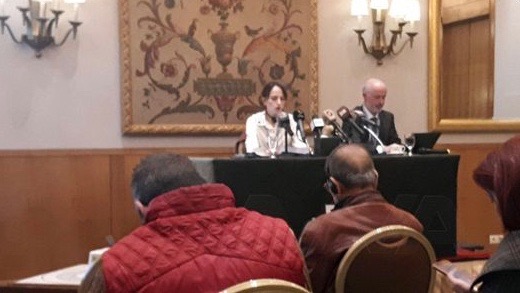Unilateral sanctions imposed by the US and its allies have hampered the economic recovery of war-ravaged Syria and continue to violate the human rights of millions of Syrians, claimed Alena Douhan, UN special rapporteur on unilateral coercive measures and human rights. She demanded the immediate lifting of all unilateral sanctions imposed on the country.
“I am struck by the pervasiveness of the human rights and humanitarian impact of the unilateral coercive measures imposed on Syria and the total economic and financial isolation of a country whose people are struggling to rebuild a life with dignity, following the decade long war,” Douhan said.
Douhan visited Syria between October 30 and November 10. She met with state officials in order to prepare the report which she will submit to the UN Human Rights Council in September 2023.
In a statement issued after her visit, Douhan narrated the catastrophic effects of unilateral sanctions across all walks of life in Syria, claiming it is “suffocating them.” According to her statement, 90% of all Syrians today are forced to live below the poverty line with around 12 million grappling with severe food insecurity.
More than half of the country’s vital infrastructure is completely destroyed due to the war which began in 2011, when a large number of regional and global players including the US started supporting the anti-Bashar al-Assad movement with arms and training.
The US has imposed a series of unilateral sanctions against the Syrian government since the beginning of the war. Accusing the Assad government of violating human rights, the US also passed the so-called Caesar Syria Civilian Protection Act in 2019, imposing secondary sanctions on all non-US citizens who deal with the Syrian government in any way and provide it financial assistance, technical support, or material goods.
Close US allies European Union (EU), the UK, Canada and Australia have also imposed similar sanctions banning exchanges of most goods and services with Syria.
Solidarity and assistance to Syrian people
Claiming that maintaining unilateral sanctions amid the catastrophic conditions in Syria may “amount to crimes against humanity,” Douhan noted that “talking about good will and intentions of the unilateral coercive measures does not justify violation of basic human rights and the international community has an obligation of solidarity and assistance to the Syrian people.”
The UN's top expert said “outrageous” Western sanctions on Syria are “suffocating” millions of civilians, and “may amount to crimes against humanity.”
The US-EU-Israel-Gulf proxy war on Syria made its economy shrink by 90%.
90% of Syrians live in poverty https://t.co/XtHCuCHhYP
— Ben Norton (@BenjaminNorton) November 12, 2022
According to Douhan, the Syrian economy has contracted by over 90% due to the war and sanctions in the last 12 years. The sanctions severely hampered the state’s capacity to make efforts to revive the economy, particularly amid a lack of economic resources mostly due to frozen foreign assets of Syrian financial institutions and other entities.
Douhan claims that “the imposition of unilateral sanctions on key economic sectors, including oil, gas, electricity, trade, construction and engineering have quashed national income, and undermine efforts towards economic recovery and reconstruction.”
Sanctions have destroyed the country’s health system. Douhan notes that “due to blocking of payments and refusal of deliveries by foreign producers and banks have caused serious shortages of medicines and specialized medical equipment particularly for chronic and rare diseases.”
Alena Douhan is a Belarusian academic. She was appointed special rapporteur of the Human Rights Council in March 2020.





